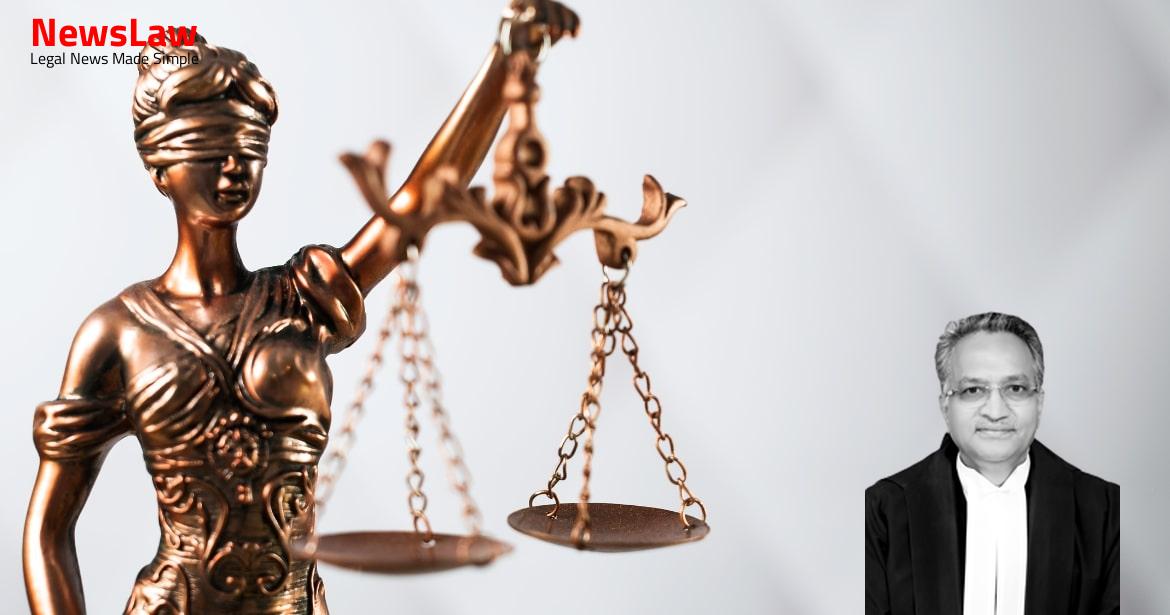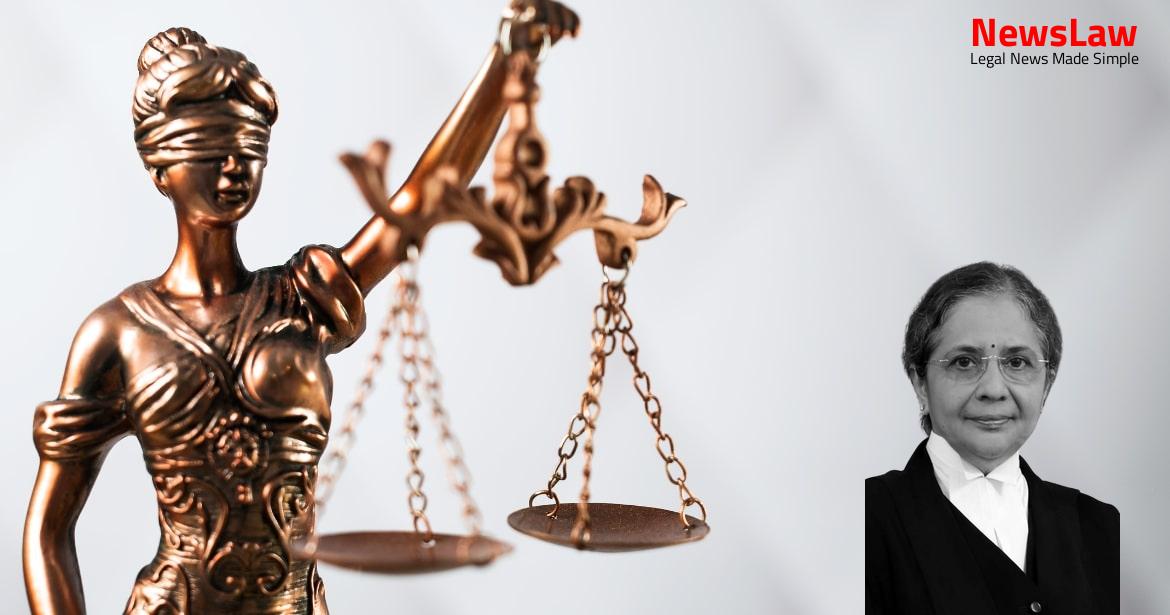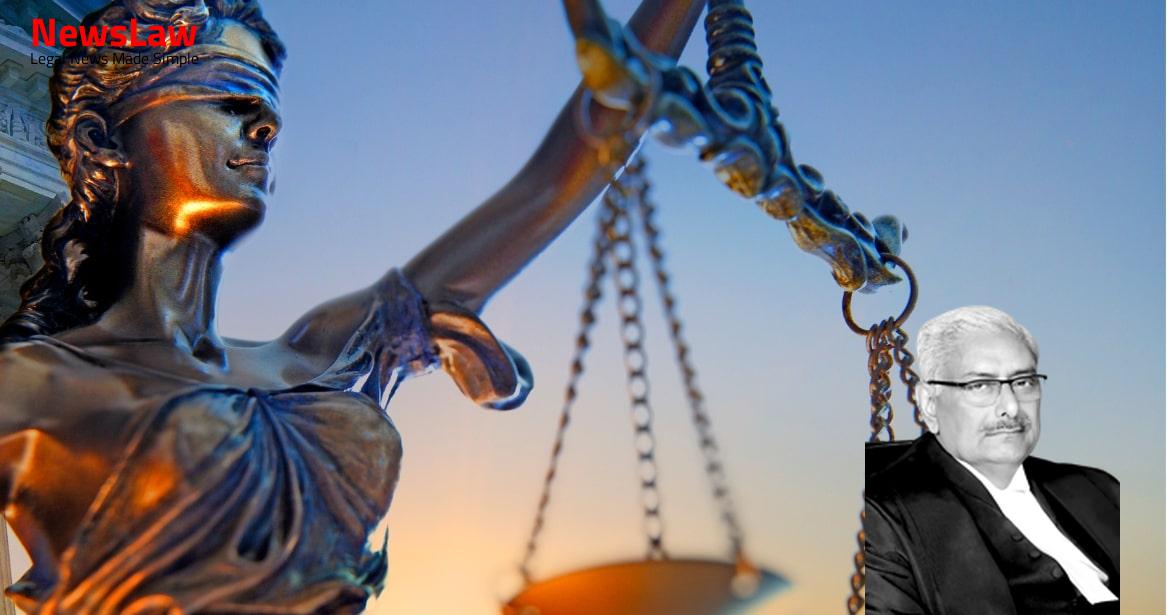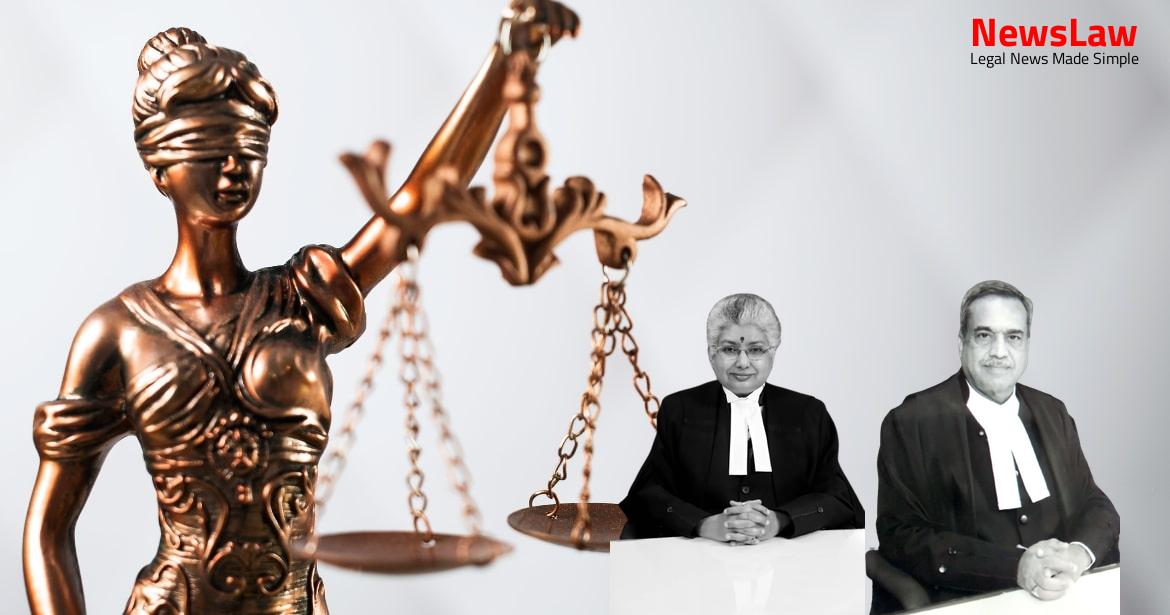Unravel the legal intricacies of a significant case involving a public trust’s property dispute. The court’s detailed analysis of the application of statutes and regulations sheds light on the complex nature of the controversy. Stay tuned to understand how the court navigates through the legal framework to determine the status and ownership of the disputed properties.
Facts
- The State Government was directed to make a provision for payment of Rs.1 crore every year to the Khasgi Trust.
- Shri V.P. Menon informed the Maharaja that the claim made by him in respect of his private properties has been approved as per Article XII of the Covenant.
- Formation of the Khasgi Trust and the Alampur Trust was approved by the State Government.
- The Khasgi Trust claimed that the Public Trusts Act was not applicable to them.
- The Collector of District Indore ruled that the properties mentioned in the Trust Deed belonged to the State Government.
- The Madhya Pradesh Public Trusts Act, 1951 was enacted by the State Government.
- Two nominees of the Ruler were to be included in the Trust.
- The Maharaja of Indore agreed to unite the territory of Indore into the United State of Gwalior, Indore, and Malwa.
- Disputes regarding private properties were to be referred to a nominated person by the Government of India.
- Valuable properties were transferred to the respective Trusts in 1962.
- Trustees made illegal alienations without prior permission from the Government.
- Authorities were directed to correct revenue records based on court orders.
- Nominees for the Trust were appointed in consultation with the Ruler.
- An inquiry was requested through CBI regarding the affairs of the Trust.
- Rs.2,91,952/- was set aside by the Madhya Bharat Government for the charities.
- The Trust Deed was executed with the involvement of various authorities and entities.
- The Division Bench found that the Khasgi properties mentioned in Part ‘B’ of the Trust Deed remained vested in the State Government, and the Trustees did not have the authority to alienate them.
- The modification of the Trust Deed by the Trustees to allow alienation of properties in Part ‘B’ was deemed illegal and not binding on the State Government.
- The alienations made by the Trustees were considered void.
- It was determined that the Khasgi Trust was governed by the Public Trusts Act.
- The learned Single Judge’s decision on the writ petitions filed by the Khasgi Trust was criticized for rewriting the Trust Deed.
Also Read: Analysis of Improper Grant of Bail in the Director of Enforcement v. Bablu Sonkar Case
Issue
- The main questions related to the status of the properties in Part ‘B’ of the Schedule to the Trust Deed include whether these properties belong to the Khasgi Trust.
- There is a question about whether the Khasgi Trust is considered a Public Trust under the Madhya Pradesh Public Trusts Act, 1951, and if its provisions are applicable to the Trust.
- The legality and validity of the Supplementary Trust Deed dated 08 May 1972 is also a key issue to be addressed.
Also Read: Withdrawal of Offending Statements in Defamation Case
Arguments
- Petitioner’s counsel argued that the impugned order was passed without jurisdiction, as the Trustees had followed all provisions of the Trust Deed and Supplementary Deed.
- It was highlighted that there was no criminal intent or mens rea on part of the Trustees in their actions.
- The counsel emphasized that the Trustees sought government sanction before making the first alienation and had not violated any laws.
- The inquiry initiated based on a Member of Parliament’s complaint lacked proper notice and disregarded the Trustees’ responses, leading to an unjust impugned order by the Collector.
- The properties in question were rightfully Trust properties, as established by various clauses in the Trust Deed.
- The petitioner’s involvement in the case was post the proceedings in the High Court, making the challenge to transactions involving the petitioner’s property unfounded.
- The petition also suggested that only a small percentage of Trust properties had been alienated over the years, and that the Public Trusts Act did not apply in this scenario.
- The Sale Deeds challenged were executed in 2009, unopposed for several years until a delayed objection raised in 2012.
- Various instances of fraudulent power of attorney executions were pointed out, indicating potential foul play by individuals not representing the Trustees.
- The argument concluded with the assertion that Trustees’ actions were in good faith and in alignment with Trust regulations, dismissing the need for intervention or inquiry by external authorities.
- Shri Balbir Singh argued that only one Trustee of the Khasgi Trust had filed the writ petitions, making them not maintainable.
- An inquiry by the Economic Offences Wing was rightly ordered due to the illegal sale of the Khasgi property.
- The impugned order of the Collector dated 5 November 2012 deserved to be set aside by allowing the writ petition.
- In the written statements and petitions, it was admitted that the Khasgi property lapsed in favor of the State Government.
- The exemption under relevant legal provisions was deemed inapplicable as the Khasgi Trust was not under the control of the State Government.
- Correspondence between Maharaja and the Government of India constituted a treaty or agreement under Article 363 of the Constitution of India.
- Constraints of the Public Trusts Act regarding alienations were not complied with in prior consent from the Registrar.
- The Khasgi properties vested in the State Government as per adjudication and were not divested thereafter.
- The Khasgi Trust, as a public trust governed by the Public Trusts Act, necessitates adjudication of disputes by the Court.
- The land appended to Ganpati Mandir was leased for a nominal amount, raising concerns of harassment and blackmail against the appellant.
- The letter dated 13 June 1969 issued by the Chief Secretary was deemed contrary to law and not binding on the State Government.
Also Read: Acquittal in IPC Offences: Lack of Test Identification Parade
Analysis
- The Khasgi Trust is governed by the provisions of the Madhya Pradesh Public Trusts Act, 1951.
- The Trustees of the Khasgi Trust are bound by the adjudication made under clause (3) of Article XII of the Covenant.
- The Trust property must be preserved, maintained, and kept intact for future generations by constituting a committee to ensure compliance.
- The Trustees are obligated to safeguard the interests of the beneficiaries of the Public Trust.
- All alienations made by the Trustees of the Khasgi Trust must comply with the mandatory requirement of obtaining previous sanction as required by Section 14.
- In case of non-compliance with regulations, the Registrar can invoke the provisions of the Public Trusts Act for necessary action.
- The Khasgi Trust is a public trust for public, religious, and charitable purposes.
- There should be limited control of the activities of a Public Trust as governed by statutes.
- The Trustees cannot alienate Trust properties without complying with Section 14 of the Public Trusts Act.
- The Trustees hold Trust properties in a fiduciary capacity for the benefit of the beneficiaries.
- The State Government’s control over charities and religious endowments is not unfamiliar in jurisprudence.
- The Trust properties include temples, ghats, etc., listed in Part ‘B’ of the Trust Deed. Ownerships of Khasgi properties vested in the State Government after adjudication.
- The Trustees must follow a fair and transparent process when dealing with Trust property transactions.
- Any loss caused to the Public Trust due to alienations by the Trustees must be quantified and addressed by the Registrar under the Public Trusts Act.
- The direction given by the High Court for an inquiry through the Economic Offences Wing was deemed unwarranted and not based on criminal findings against the Trustees.
- The Trustees are duty-bound to adhere to the regulations in the Trust Deed and the Public Trusts Act while managing Trust properties.
- The Registrar, under Section 22 of the Public Trusts Act, has the power to call for records and reports from Trustees, determine the amount liable to be paid by Trustees for loss to the Public Trust, and form a committee for this purpose.
- The Committee constituted for this work includes high-ranking officials such as the Chief Secretary, Finance Department Principal Secretary, and others.
- Section 36 of the Act provides exemptions for certain public trusts administered by state agencies or local authorities.
- The Trust composition includes nominees of various governmental bodies and the Ruler of Indore as the President.
- The State of Madhya Pradesh is authorized to proceed according to law and incur any expenses required for the inquiry into properties sold by the Trust or any misappropriated funds.
- The Covenant between the Maharaja and the Government regarding ownership of private properties is mentioned.
- The Registrar can require a working trustee to submit an explanation for any defects in trust administration, and can make an application under Section 26 if mismanagement is noticed.
- The Court has the power to make various orders, including removing trustees, appointing new ones, and providing a scheme for trust property management.
- The definition of a Public Trust under Section 2 includes trusts for public, religious, or charitable purposes.
- The Court can hear applications for directions and make inquiries as necessary based on Section 27 of the Act.
- The view taken by the Court regarding alienation of public property is consistent
- Trustees must dispose of Trust property only for the benefit of the Trust or its beneficiaries, not as a private venture
- Section 14 puts an embargo on the powers of Trustees of a Public Trust from alienating the trust property
- Section 14(1) requires previous sanction of the Registrar of public trusts for sale, mortgage, exchange, or gift of any immovable property
- Embargo on alienation also applies to long-term leases of agricultural or non-agricultural properties
- Government nominees in the Trust to be appointed after consultation with the Ruler
- The Trust to be headed by the Ruler of Indore as its President
Decision
- The Khasgi Trust must be registered under the Public Trusts Act within one month.
- Properties described in Part ‘B’ of the Schedule to the Trust Deed belong to the Public Trust.
- The Collector, Haridwar will assist the Divisional Commissioner, Indore in ensuring that Kusha Ghat and other public charity properties are made available to the public.
- The State of Madhya Pradesh is directed to restore the Khasgi properties to their original state and bear the entire expenditure.
- The State of Madhya Pradesh must take steps to prevent further sales of the properties and maintain them for future generations.
- Funds from the properties are to be put under a permanent trust for various charities, including those of Her Highness Mahar Ahilya Bai Holkar.
- The impugned judgments of the Division Bench and the Learned Single Judge of the Madhya Pradesh High Court are set aside.
- The Registrar may take further actions and initiate proceedings as necessary under the Public Trusts Act.
- An inquiry will be held regarding the alienation made in favor of Shri Gajanan Maharaj Sansthan to determine compliance with conditions.
Case Title: THE KHASGI (DEVI AHILYABAI HOLKAR CHARITIES)TRUST INDORE Vs. VIPIN DHANAITKAR (2022 INSC 739)
Case Number: C.A. No.-004839-004839 / 2022



